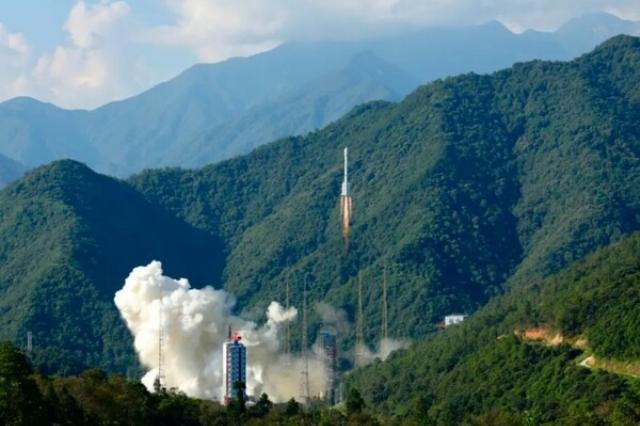China plans to expand access to space with the help of a commercial spaceport at the Xichang Cosmodrome.
According to Liangshan Daily, on October 9, Liangshan Prefecture and Sichuan Development signed an agreement on strategic cooperation and the opening of the Sichuan Development International Commercial Spaceport. This project is a key part of the provincial government's aerospace initiatives, but specific data on the number of launch sites or the types of rockets and fuel that will be supported have not been provided.
The representative of Liangshan Prefecture highlighted the strategic opportunities presented by the spaceport, calling for efforts to attract leading aerospace companies and develop an industrial cluster.
Chinese commercial space companies such as Landspace, iSpace, Space Pioneer, Deep Blue Aerospace, Galactic Energy and others are developing reusable medium-lift launch vehicles that require access to launch sites.
The new spaceport is in line with the central government's policy to promote commercial space and provincial plans to ensure local growth. It can also potentially support national goals, including increasing the frequency of launches, which will allow megastars to be placed into low Earth orbit, namely the Guowang and Qianfan/Thousand Sails projects.
The commercial space industry was highlighted as a priority in the central government's performance report in March, along with other strategic new industries. Municipal and provincial governments, including Beijing, Shanghai, Shandong, Hainan and Anhui, have recently introduced policies to attract and support commercial space companies. Cities and provinces see this sector as a way to attract innovative companies and stimulate growth.
Guangdong Province published an "Action Plan to promote the qualitative development of Commercial Space" on October 14. The plan outlines goals such as promoting the creation of low-orbit satellite groupings and offshore launch sites, as well as strengthening research on key basic technologies for satellites and rockets.
China already has three domestic spaceports in Jiuquan, Taiyuan and Xichang. Wenchang on the coast of Hainan Island is launching Chinese new-generation Long March missiles, as well as two new commercial launch pads. Commercial facilities will also be expanded. In addition, the eastern province of Shandong has also been providing sea launches since 2019.
The number of launches in China has increased from a national record of 22 in 2016 to 55 in 2022 and 67 in 2023. CASC, the country's main contractor for space launches, said earlier this year that the country plans to carry out about 100 launches during 2024, including 30 missions from commercial service providers.
China has made a total of 47 launch attempts in 2024 to date, the target indicates a planned increase in launches and the need for greater access to launch sites. The first launches from the new commercial launch sites of Wenchang are expected this year, in particular, the debut of the Long March 12 and Long March 8 rockets.

